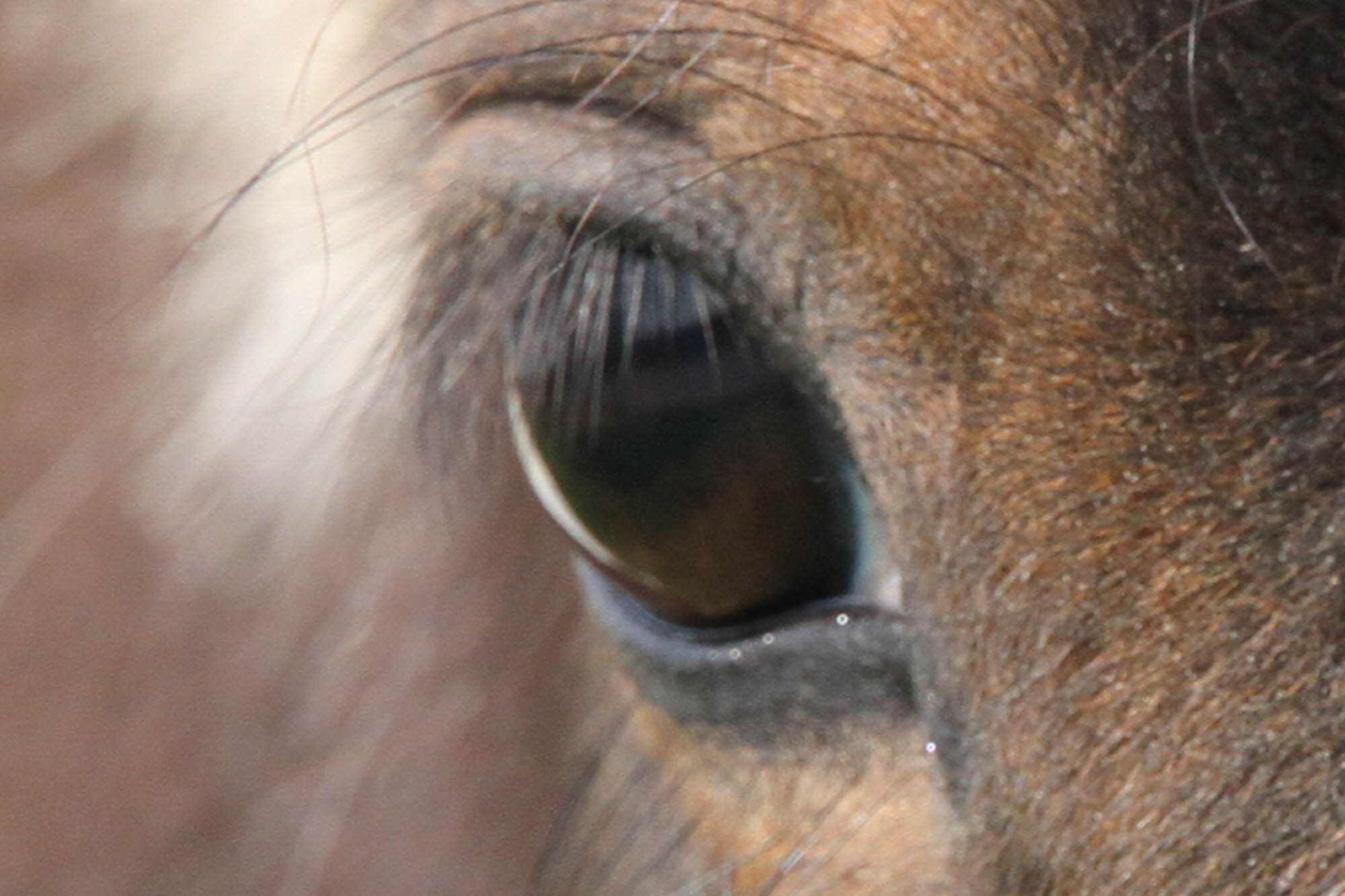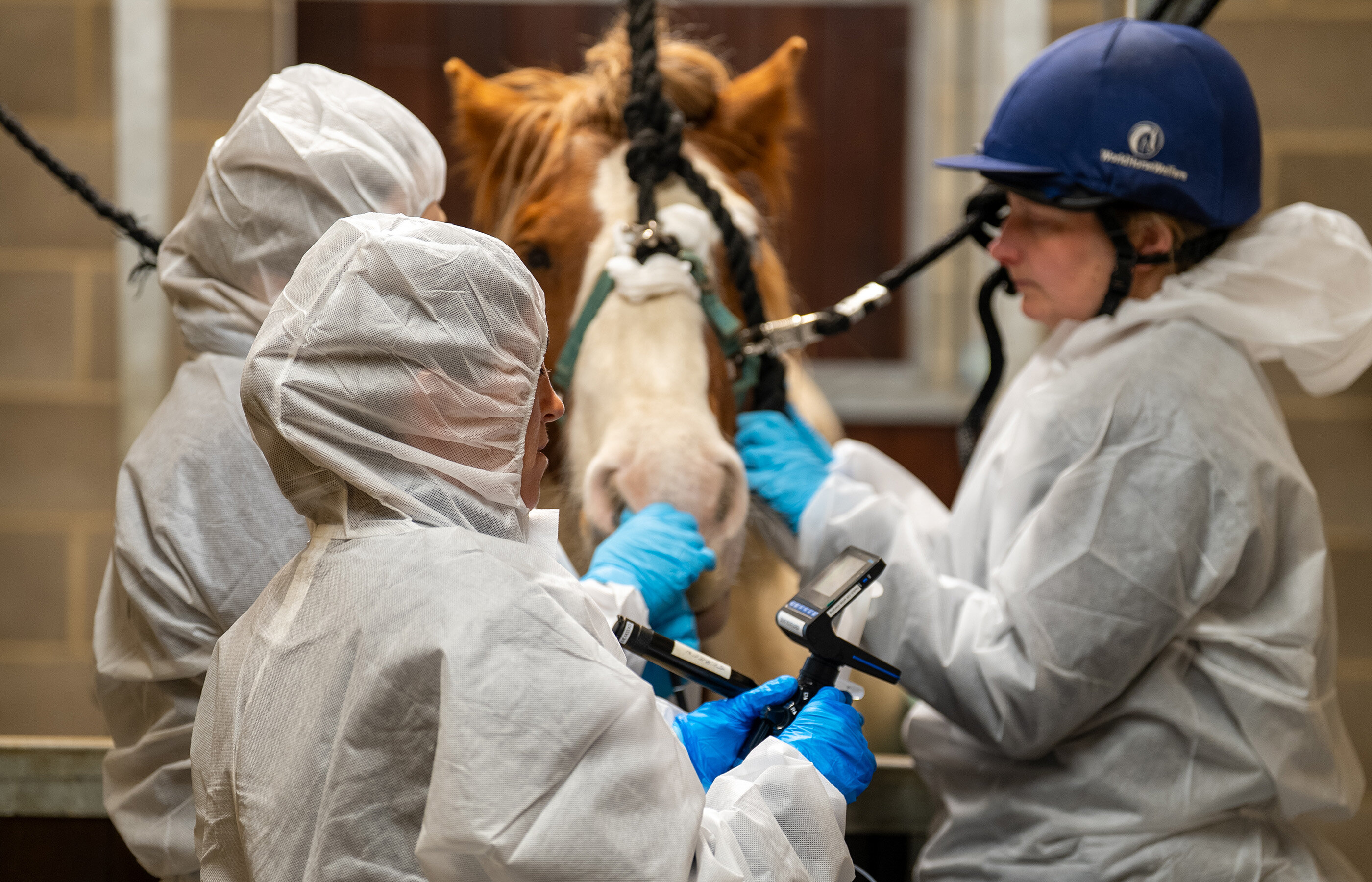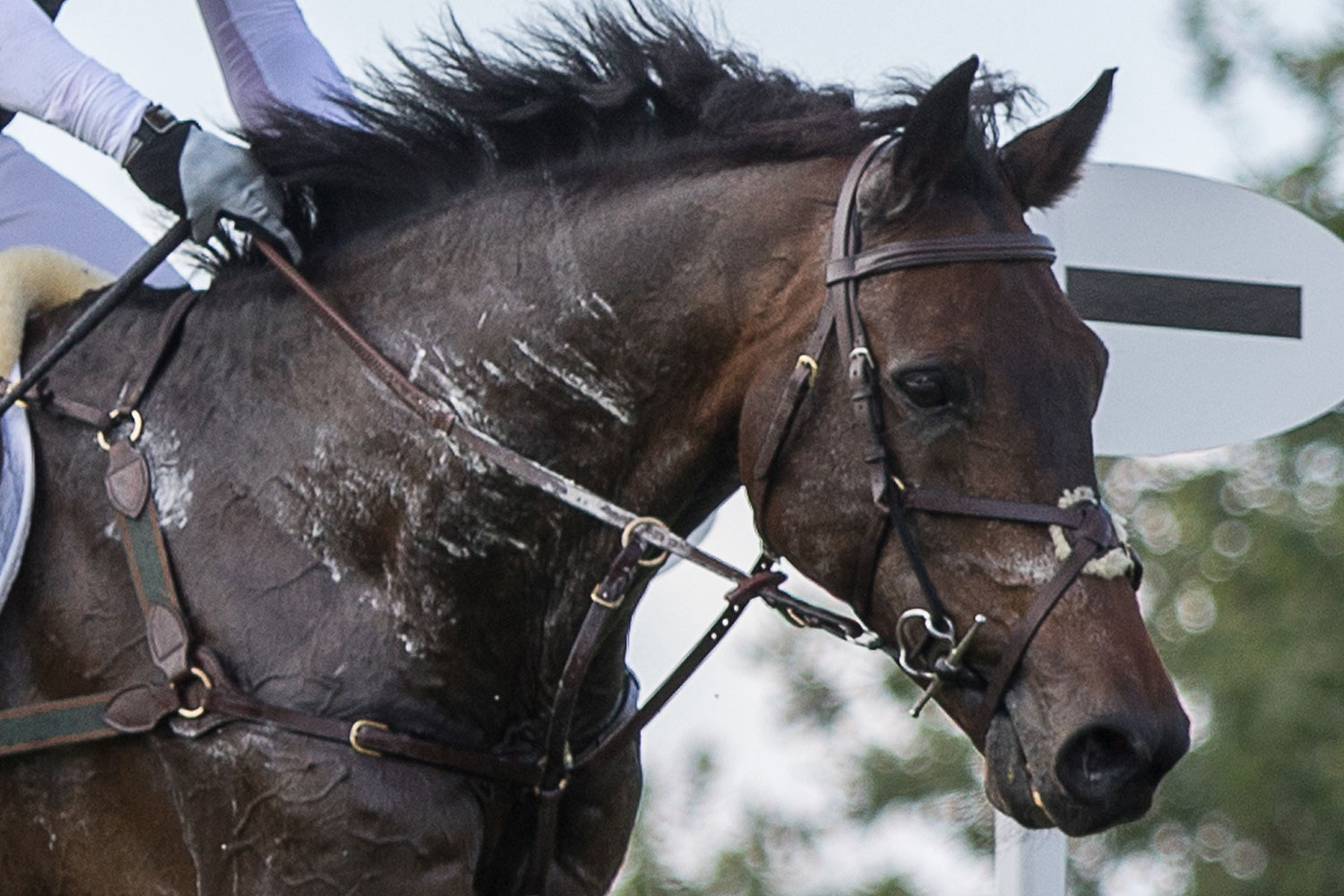Responsibility for equine welfare is not a choice, it’s a duty and the equine sector must pull together
World Horse Welfare Annual Conference 2019 explored need for collective responsibility across the equine sector to tackle all elements of horse welfare head on.
Posted on 21/11/2019

Abraham Lincoln’s maxim “You cannot escape the responsibility of tomorrow by evading it today,” was the message from World Horse Welfare Chief Executive Roly Owers, speaking at the charity’s 2019 Annual Conference which took place in London last week (13th November).
“Who is responsible?” was the question posed at this year’s event at the Royal Geographical Society, chaired by George Freeman and sponsored by the Sir Peter O’Sullevan Charitable Trust, which was attended by around 400 guests, including the charity’s President HRH The Princess Royal. Speakers from national horse sports, veterinary, welfare, journalism and mental health sectors presented their insights, producing animated debate to find feasible answers.
Roly began the day’s proceedings by emphasising that responsibility is a combination of both personal and collective duty. He said: “We all have roles to play in this fragile web of the equine world and beyond,” and to achieve the greatest impact we need to work together in partnership with others. Significant barriers include the systemic failure of enforcement of the Animal Welfare Act and a lack of accountability for those who breed horses irresponsibly. “Do we need to accept that too many horses have been bred and that euthanasia can and should be a welfare option when there is nowhere that can take them?” he asked.
Roly highlighted that the equine ID regulations – and particularly the Central Equine Database – have great potential to link every equine to an owner, so making them accountable. But the system still was not working:
“We have a collective responsibility to change this – starting with creating a way for owners to easily update their information on the Central Equine Database and ensuring that all horses are microchipped by the various deadlines across our four nations.”
Roly Owers, World Horse Welfare Chief Executive
He also raised the point that accountability can be complicated by the fact that that so often behind an equine welfare case is a human welfare case, especially with hoarders. Meeting responsibility to horses is also about challenging the status quo and achieving behavioural change: “The future is in our hands, but the question is can we meet Abraham Lincoln’s challenge?”, he said.
Annamarie Phelps, Chair, British Horseracing Authority, spoke about fulfilment and communication of responsibility taken for the use of the horse in sport. For jockeys, racing is a vocation and care and welfare are pivotal in their relationship with the horse, she explained. “I would acknowledge that we’re not connecting with people in the way we’d like to at present, whether this is inside or outside our sport. This a global problem for racing particularly at this time. And for equestrian sports too.”
“We must focus on what we do to maximise the benefits to horses and what we do to minimise the risks.” Our aim is for a “resilient, robust and sustainable sport.”
Dr Rachel Murray, research consultant at the Animal Health Trust, turned the responsibility spotlight on to the fitting of tack: “We think carefully about saddles, but bridles are often forgotten,” she said. She described recent studies which showed the prevalence of lesions in the mouth, stressing the importance of good dental care, and studies on bridle and bit fitting that demonstrated the different pressure points on the head, not only caused by poorly fitting bits but also by inappropriately fitted nosebands, headpieces and browbands. Asymmetry of horses’ heads was too often not taken into consideration and each horse must be treated as an individual. By using a bridle designed to pad all pressure areas, pressure can be significantly reduced and “we can affect the comfort of the horse and free up movement,” she said. She is currently working with World Horse Welfare to put together guidelines to help with bridle fit.
Bronwen Williams, independent trainer and educator and registered Mental Health Nurse who has undertaken research into animal hoarding, spoke about the connection between humans and animals and how it can affect mental health for good or for bad. She explained that hoarding is more common than generally realised and that in some instances it may be a type of addictive behaviour, particularly with those who are ‘chasing the one’ ideal example of what they are trying to breed. “Human behaviour change needs to be intrinsic to that person. Telling a person they have to change doesn’t work…. You cannot educate someone into submission,” said Bronwen, who is currently delivering a project with World Horse Welfare which aims to train welfare staff in interventions for those at risk of, or involved in, the hoarding of animals.
Next on the agenda was YouTube star ThisEsme who gave her personal perspective on the responsibility of being a social media influencer whose channels have around 12 million views per month. “If you are taking on a horse you are taking on a huge responsibility” she said. This is why she works to inspire people to take lessons and to learn about equine management and welfare and also embraces “the realities and the positives” of horse ownership.
Inspector Dave Smith of Kent Police, who is also chair the National Equine Crime Priority Development Group, spoke about where responsibility lies for national equine crime. With only around half of the nation’s horses microchipped and at least 3,000 horses fly-grazed in England according to NFU data, the task is substantial and there is also the problem of trailer, horsebox and tack theft. He described recent success in Durham with a 75% reduction in fly-grazing in 2018 using a procured green yard scheme; seized horses are microchipped and passported and the owner has to pay the costs as well as a fine when reclaiming the horse. A similar scheme in Kent has improved welfare and reduced costs to the taxpayer for horse seizures from £260,000 per year in 2016 to £100,000 in 2017 and to only £20,000 in the first eight months of 2019. With such initiatives “we are, together, shutting the gate on equine crime,” he said.
A discussion panel of six high profile individuals: Mike Cattermole (journalist and broadcaster), Joe Stockdale (showjumper), Madeleine Campbell (equine vet), Joe Wilson (BBC news sports correspondent), Lyndsey Stride (New Forest commoner) and Julie Ross (equine vet and World Horse Welfare Trustee), tackled the finer details of a responsible approach to welfare. They discussed the role of elite riders in promoting appropriate training to the wider equestrian world, the environmental benefits of equines grazing on open grasslands such as the New Forest and the role of vets in raising uptake of equine flu vaccinations, which currently stands at around 30% of British horses.
The day concluded with World Horse Welfare President HRH The Princess Royal giving her thoughts on the day’s proceedings. She commented that:
“Responsibility, [like care], is not really an academic subject; it is something that people inherently understand what the word means. But there is an importance in being able to define it with a bit more clarity in certain areas. What we’ve been hearing today also shows us how difficult that is to do, because the various interests and parties all have a slightly different area of what they define that they are responsible for.” She also commented “the ability to recognise a horse’s talents and how they fit with yours is part of that responsibility.” She said: “You absolutely cannot guarantee there are no risks. By definition, all animals, particularly horses, are a risk both to you and themselves,” but “understanding the risks … will make it possible to reduce some of those.”
Speaking of the horse-human partnership, she said:
“I think we should not underestimate the equine’s ability to make choices. Some of us know from painful experience that they are quite capable of saying ‘no’ when they don’t want to do something…. But they are also very prepared to be our partners in a number of different ways, and we are extremely privileged that they do so. Therefore, it is our responsibility to make sure that that partnership works as well as possible, that we have the information available that enables us to do it better.”
World Horse Welfare Chief Executive Roly Owers closed the conference saying: “We can’t put our responsibility to our horses into the ‘too difficult’ pile – small steps really do make a difference.”
Topics
Related News

Why we should all take a look ‘Through the horse’s eyes’
Experts from around the globe inspired us to put the horse at the centre of how we think, act, care, ride and legislate at our conference.

We’re Charity of the Year at Defender Burghley Horse Trials
As the event's official charity, we'll be able to raise funds and boost awareness of our work amongst a wider audience.
Recommended Blog Posts

Strangles can be stubborn. But so are we!
How we’re treating horses and clearing carriers of the disease at Hall Farm.

Social licence – how the perception of horse riding has changed
With a recent survey revealing some startling findings about perceptions of the welfare of horses in sport, the horse world has plenty to discuss.

Applying a whole horse approach at our rescue and rehoming centres
We catch up with Belwade Farm Centre Manager Eileen to find out more.
Enjoy reading stories like this?
Join over 65,000 other horse lovers and sign up for our email newsletter

Join over 65,000 other horse lovers and sign up for our email newsletter
Sign me up now